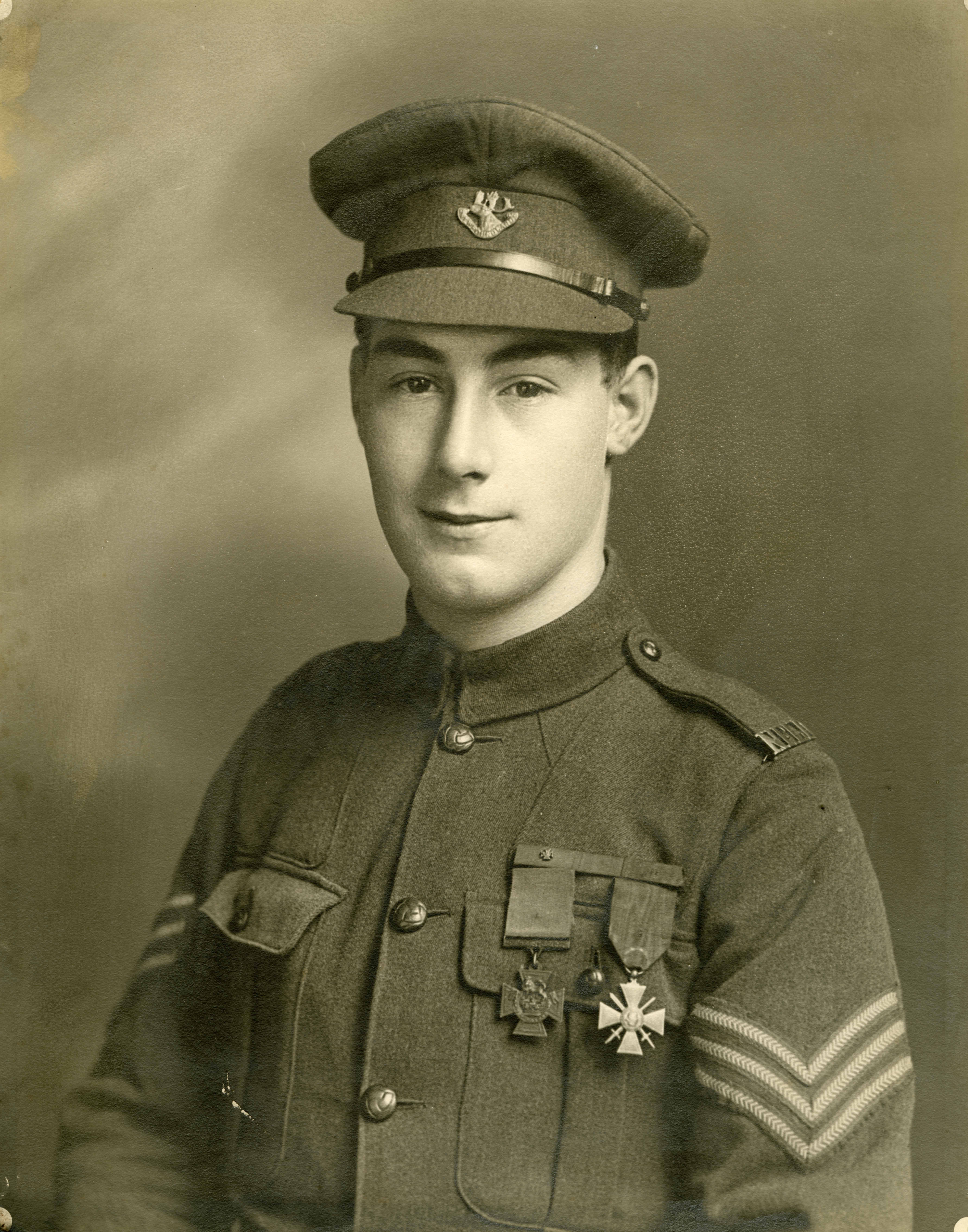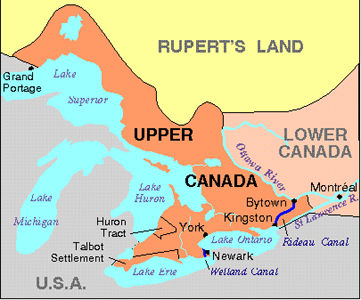Browse "People"
-
Article
Thomas Phillips Thompson
Thomas Phillips Thompson, journalist, socialist intellectual (b at Newcastle-upon-Tyne, Eng 25 Nov 1843; d at Oakville, Ont 20 May 1933). Under the pseudonym "Jimuel Briggs," Thompson wrote political satire for the St
"https://d2ttikhf7xbzbs.cloudfront.net/media/media/5b62e8e6-72b9-4c1a-9794-70135437132d.jpg" // resources/views/front/categories/view.blade.php
https://d2ttikhf7xbzbs.cloudfront.net/media/media/5b62e8e6-72b9-4c1a-9794-70135437132d.jpg
-
Article
Thomas Pichon
Thomas Pichon, alias Thomas Tyrell, colonial official, spy, author (b at Vire, France 30 Mar 1700; d at St Helier, Jersey 22 Nov 1781).
"https://development.thecanadianencyclopedia.ca/images/tce_placeholder.jpg?v=e9dca980c9bdb3aa11e832e7ea94f5d9" // resources/views/front/categories/view.blade.php
https://development.thecanadianencyclopedia.ca/images/tce_placeholder.jpg?v=e9dca980c9bdb3aa11e832e7ea94f5d9
-
Article
Thomas Ricketts, VC
Thomas (Tommy) Ricketts, soldier, pharmacist, Victoria Cross recipient (born 15 April 1901 in Middle Arm, White Bay, NL; died 10 February 1967 in St. John’s). During the First World War, Private Tommy Ricketts was the youngest soldier to be awarded the Victoria Cross (VC), the highest award for bravery among troops of the British Empire.
"https://d2ttikhf7xbzbs.cloudfront.net/media/media/e4d4fed2-4bee-4cb7-a0b9-d3fa2650ae66.jpg" // resources/views/front/categories/view.blade.php
https://d2ttikhf7xbzbs.cloudfront.net/media/media/e4d4fed2-4bee-4cb7-a0b9-d3fa2650ae66.jpg
-
Article
Thomas Rolston
Thomas (Edmund) Rolston. Violinist, violist, teacher, b Vancouver 31 Oct 1932, d there 29 May 2010; LRSM 1949, ARAM 1961, honorary LLD (Wilfrid Laurier) 1998.
"https://development.thecanadianencyclopedia.ca/images/tce_placeholder.jpg?v=e9dca980c9bdb3aa11e832e7ea94f5d9" // resources/views/front/categories/view.blade.php
https://development.thecanadianencyclopedia.ca/images/tce_placeholder.jpg?v=e9dca980c9bdb3aa11e832e7ea94f5d9
-
Article
Thomas Schudel
Thomas (Michael) Schudel. Composer, bassoonist, teacher, b Defiance, O, 8 Sep 1937; B SC music education (Ohio) 1959, MA music theory (Ohio) 1961, DMA (Michigan) 1971.
"https://development.thecanadianencyclopedia.ca/images/tce_placeholder.jpg?v=e9dca980c9bdb3aa11e832e7ea94f5d9" // resources/views/front/categories/view.blade.php
https://development.thecanadianencyclopedia.ca/images/tce_placeholder.jpg?v=e9dca980c9bdb3aa11e832e7ea94f5d9
-
Article
Thomas Scott
Thomas Scott, insurgent, labourer (born c. 1842 in Clandeboye, County Down Ireland; died 4 March 1870, in Red River Colony). Scott was an Irish Protestant who moved to the Red River Colony in 1869 and joined the Canadian Party. His actions against the Provisional Government of Assiniboia twice led to his arrest and jailing. Scott was convicted of treason and executed by the provisional government, led by Louis Riel, on 4 March 1870. His execution led to the Red River Expedition, a military force sent to Manitoba by Prime Minister Sir John A. Macdonald to confront the Métis at Red River. From that point on, Protestant Ontarians, especially members of the powerful Orange Order, wanted retribution from Riel for Scott’s death. Scott’s execution led to Riel’s exile and to Riel’s own execution for treason in 1885.
"https://d2ttikhf7xbzbs.cloudfront.net/media/media/132c7732-6818-4002-b060-1a78ecef2729.jpg" // resources/views/front/categories/view.blade.php
https://d2ttikhf7xbzbs.cloudfront.net/media/media/132c7732-6818-4002-b060-1a78ecef2729.jpg
-
Article
Thomas Seaton Scott
Thomas Seaton Scott, architect (b at Birkenhead, Eng 16 July 1826; d at Ottawa 15 June 1895).
"https://development.thecanadianencyclopedia.ca/images/tce_placeholder.jpg?v=e9dca980c9bdb3aa11e832e7ea94f5d9" // resources/views/front/categories/view.blade.php
https://development.thecanadianencyclopedia.ca/images/tce_placeholder.jpg?v=e9dca980c9bdb3aa11e832e7ea94f5d9
-
Article
Thomas Sterry Hunt
Thomas Sterry Hunt, chemist, geologist (b at Norwich, Conn 5 Sept 1826; d at New York C 12 Feb 1892). After studying at Yale under Benjamin Silliman Jr, Hunt joined the GEOLOGICAL SURVEY OF CANADA in 1846 as a chemist and mineralogist.
"https://development.thecanadianencyclopedia.ca/images/tce_placeholder.jpg?v=e9dca980c9bdb3aa11e832e7ea94f5d9" // resources/views/front/categories/view.blade.php
https://development.thecanadianencyclopedia.ca/images/tce_placeholder.jpg?v=e9dca980c9bdb3aa11e832e7ea94f5d9
-
Article
Thomas Sydney Leeson
Thomas Sydney Leeson, anatomist, electron microscopist (born 26 January 1926 in Halifax, England; died 26 July 2006 in Edmonton, AB).
"https://development.thecanadianencyclopedia.ca/images/tce_placeholder.jpg?v=e9dca980c9bdb3aa11e832e7ea94f5d9" // resources/views/front/categories/view.blade.php
https://development.thecanadianencyclopedia.ca/images/tce_placeholder.jpg?v=e9dca980c9bdb3aa11e832e7ea94f5d9
-
Article
Thomas Talbot
After 1825, Talbot's power began to decline for reasons that included a popular spirit of reform, increasing bureaucracy and Talbot's eccentricity. Socially intolerant and exclusive, he lived alone and isolated in his Pt Talbot "castle.
"https://d2ttikhf7xbzbs.cloudfront.net/media/media/d1817dce-5cf3-4afa-85b7-a8d39574989e.jpg" // resources/views/front/categories/view.blade.php
https://d2ttikhf7xbzbs.cloudfront.net/media/media/d1817dce-5cf3-4afa-85b7-a8d39574989e.jpg
-
"https://development.thecanadianencyclopedia.ca/images/tce_placeholder.jpg?v=e9dca980c9bdb3aa11e832e7ea94f5d9" // resources/views/front/categories/view.blade.php
https://development.thecanadianencyclopedia.ca/images/tce_placeholder.jpg?v=e9dca980c9bdb3aa11e832e7ea94f5d9
-
Article
Thomas William Fripp
Thomas William Fripp, painter (b at London, Eng 23 Mar 1864; d at Vancouver 30 May 1931).
"https://development.thecanadianencyclopedia.ca/images/tce_placeholder.jpg?v=e9dca980c9bdb3aa11e832e7ea94f5d9" // resources/views/front/categories/view.blade.php
https://development.thecanadianencyclopedia.ca/images/tce_placeholder.jpg?v=e9dca980c9bdb3aa11e832e7ea94f5d9
-
Article
Thompson, Berwick, Pratt and Partners
Thompson, Berwick, Pratt and Partners, architects, Vancouver, BC. Founded in 1908 as Sharp and Thompson by Englishmen G.L.T. Sharp and Charles J. Thompson, this firm played a major role in Vancouver and Canadian architecture through the century.
"https://development.thecanadianencyclopedia.ca/images/tce_placeholder.jpg?v=e9dca980c9bdb3aa11e832e7ea94f5d9" // resources/views/front/categories/view.blade.php
https://development.thecanadianencyclopedia.ca/images/tce_placeholder.jpg?v=e9dca980c9bdb3aa11e832e7ea94f5d9
-
Article
Thomson Reuters
Thomson Reuters (formerly The Thomson Corporation) was created on 17 April 2008 after The Thomson Corporation purchased Reuters.
"https://development.thecanadianencyclopedia.ca/images/tce_placeholder.jpg?v=e9dca980c9bdb3aa11e832e7ea94f5d9" // resources/views/front/categories/view.blade.php
https://development.thecanadianencyclopedia.ca/images/tce_placeholder.jpg?v=e9dca980c9bdb3aa11e832e7ea94f5d9
-
Article
Roy Herbert Thomson, Baron Thomson of Fleet
Roy Herbert Thomson, Baron Thomson of Fleet, newspaper tycoon (b at Toronto 5 Jun 1894; d at London, Eng 4 Aug 1976).
"https://development.thecanadianencyclopedia.ca/images/tce_placeholder.jpg?v=e9dca980c9bdb3aa11e832e7ea94f5d9" // resources/views/front/categories/view.blade.php
https://development.thecanadianencyclopedia.ca/images/tce_placeholder.jpg?v=e9dca980c9bdb3aa11e832e7ea94f5d9
